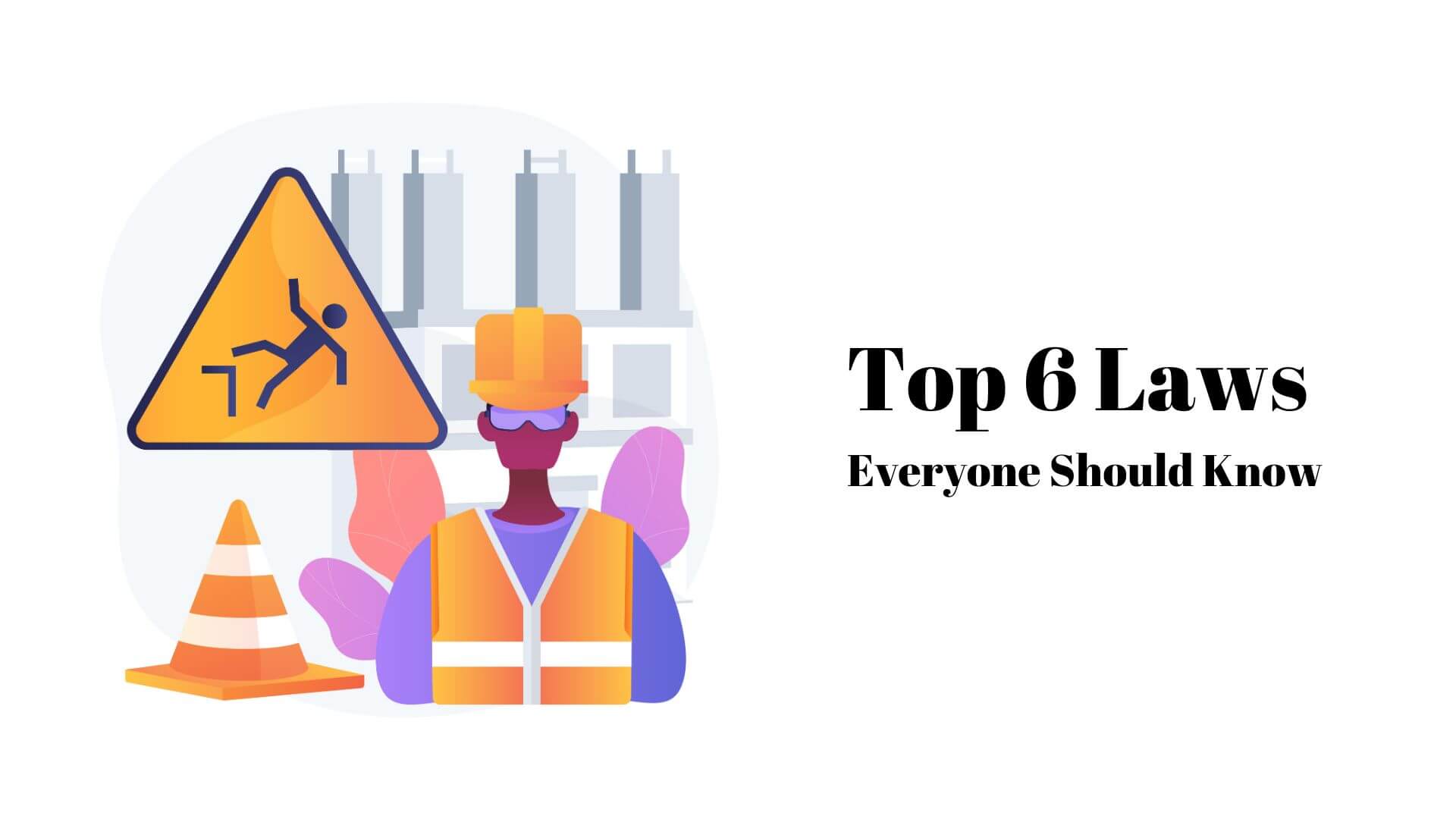Making sure you comply with the law is an important part of being a responsible and law-abiding citizen. Knowing the basic laws can help you protect your rights in various situations, so it's a good idea to familiarize yourself with some of the most common laws. Here are six laws everyone should know about.
1. Construction Safety
Construction safety is an important part of any building project, and it’s essential for everyone involved to be aware of all applicable laws and regulations. The Occupational Safety & Health Administration (OSHA) is the federal agency responsible for ensuring construction workers are safe on the job. Under OSHA rules, employers must provide a workplace free from recognized hazards that could cause death or serious physical harm to employees. This includes providing proper training and protective equipment, as well as enforcing safety measures such as fall protection systems. As a Jericho construction accident attorney notes, if there is an accident, workers should seek legal advice to determine whether their employer violated any safety regulations. A good personal injury lawyer can help workers receive just compensation for injuries suffered on the job. It’s also important to be aware of any state-level safety laws that may apply in your area.
2. Workers’ Rights
Employees in the United States have certain rights under federal law, such as the right to be free from discrimination based on race, gender, age, or disability. The Equal Employment Opportunity Commission (EEOC) enforces laws that protect employees from unfair practices in the workplace. Under Title VII of the Civil Rights Act of 1964, employers can’t discriminate against employees based on their protected characteristics; this includes refusing to hire or promote someone because of their race, religion, or national origin. Moreover, the National Labor Relations Act protects workers’ rights to organize and collectively bargain for fair wages and working conditions.
3. Consumer Protection
Consumers also have rights when it comes to goods and services purchased in the United States. The Federal Trade Commission is responsible for enforcing consumer protection laws, such as the Fair Credit Reporting Act. This law ensures consumers have access to accurate credit reports and can dispute any inaccurate information that appears on their reports. The FTC also regulates advertising and marketing practices, making sure companies don’t make false or misleading claims about their products and services.
4. Intellectual Property
Intellectual property refers to creations of the mind, such as inventions, literary and artistic works, symbols, names, and images. It is protected by copyright and trademark laws to safeguard inventors’ rights to their creations. Under copyright law, authors have exclusive rights over their original works for a certain period; this includes preventing others from copying or distributing their work without permission. Trademark law, on the other hand, protects words, phrases, and symbols that distinguish a particular company’s goods or services.
5. Taxation
Taxes are an unavoidable part of life for most individuals in the United States; however, it is important to understand your rights when it comes to paying taxes. The Internal Revenue Service (IRS) is responsible for collecting taxes from individuals and businesses. It’s important to know the different types of taxes that may apply to you and understand your obligations under federal law. For example, all citizens must file a tax return each year and pay any applicable income tax; failure to do so can result in serious penalties including fines or jail time.
6. Gun Control
Gun control laws are designed to regulate the sale, possession, and use of firearms in the United States. These laws vary from state to state but generally require individuals to obtain a permit or license before they can purchase a gun. Laws also typically prohibit certain people from owning guns, such as convicted felons or individuals with histories of mental illness.
Furthermore, many states have laws that limit where firearms can be carried and stored; for instance, some states may require firearms to be stored in a locked container when not in use. Knowing your local gun laws is essential if you plan on owning or carrying a firearm.
Why is it important to be aware of these laws? Knowing the laws that apply to you can help you make informed decisions and understand your rights and responsibilities. Additionally, it is important to follow applicable laws to avoid any unnecessary legal trouble. Staying up-to-date on changes in the law is also essential; for example, if a new law is passed that affects your rights or obligations, then it’s important to take the time to understand how it may impact you. By staying informed about relevant laws, you can better protect yourself and ensure you are following all applicable regulations.
As we saw, there are many laws in the United States governing different aspects of life. It’s important to understand these laws and your rights as a citizen, so you can ensure you’re complying with the law and protect yourself from any potential legal issues. This is especially true when it comes to safety regulations, workers' rights, consumer protection, intellectual property, taxation, and gun control. Knowing these laws can help you make informed decisions about how to best protect yourself, your rights, and your property. Good luck!





